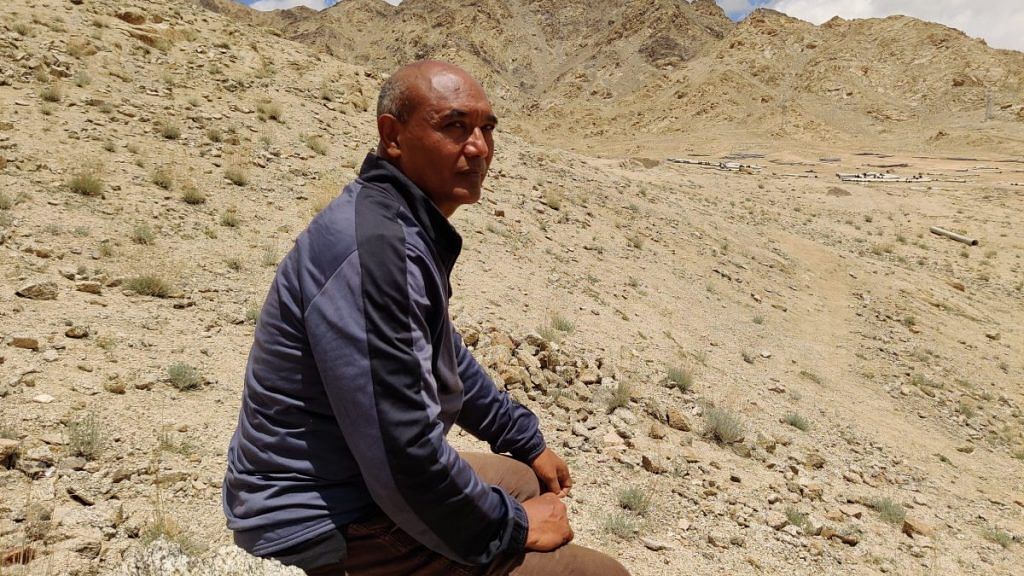Leh (Ladakh): Kargil War hero and Maha Vir Chakra recipient Colonel (retd) Sonam Wangchuk said India cannot slacken its vigil along its borders, and that the time is ripe for a strong political will to protect the borders against the combined might of China and Pakistan.
“This is an unprecedented situation between India and China, one not seen since 1962. We need strong political will to keep all channels open, engage on all fronts to ensure a solution is found,” he said.
Wangchuk was speaking to ThePrint in an exclusive interview less than a fortnight after 20 Indian soldiers were killed in action at the Galwan Valley in Eastern Ladakh in the most dangerous flare-up between India and China in over four decades.
Asked about the contradictory versions coming from the government and the Army about the 15 June clash, Wangchuk said one cannot deny that there has been an incursion.
While PM Modi had said that there’s been no incursion in Indian territory, Lt Gen Harinder Singh who led talks with the Chinese said that PLA soldiers need to move out of Indian territory.
“The Army is apolitical. They will only do what the government of the day asks them to do. You cannot deny that there has been Chinese build-up at Pangong Lake and Galwan Valley,” said Wangchuk. “Fortunately, the forces are insulated from what the government is saying and commanders ensure their morale remains high to focus on the task at hand.”
Colonel Wangchuk is well known for his exploits in the Kargil War. Then a Major, he was tasked with recapturing the Chorbat La pass from Pakistan in June 1999. Wangchuk’s team, called the Snow Tigers of the Ladakh Scouts regiment, not only got back material proof of Pakistani presence at Chorbat La, along the LoC, but also held onto that pass for 14 days.
The documentary Lion of Ladakh details his team’s action. He was later awarded the Maha Vir Chakra, India’s second highest gallantry award, for his exemplary courage that set the tone for India’s victory against Pakistan in Kargil.
‘Cannot slacken our vigil at any point’
Wangchuk said the need of the hour is to understand the strategies of both Pakistan and China. “Especially because they are joining hands, our security concerns automatically increase,” he stressed. “We need to modernise our equipment, training to strengthen our forces. We cannot slacken our vigil on the borders at any point.”
To build our strength at the border, Wangchuk said, the focus should be on taking up local concerns. “We need strong political will to strengthen border security. Give locals in border areas a voice and develop these places,” he said. “Our border villages are not developed and they are facing the brunt of the Chinese. They are being bullied by the Chinese, their land is being taken away and no one is listening to them. We need a mechanism to take direct local concerns to the highest levels of the government to stop such incursions.”
Wangchuk said it is also important to prioritise local Ladakhis in order to strengthen the Army in border areas along the Line of Actual Control (LAC).
“Ladakhis know this terrain, they grow up and live in the mountains. Soldiers from the plains take time to acclimatise,” he said. “Similarly, when Ladakhis are sent to places like Rajasthan, they also take time to adjust. To strengthen vigil at the LAC we need more Ladakhis in the forces deployed here.”
Also read: Crossed Shyok river barefoot with ice cutting our feet: 1962 war veteran recalls Galwan
